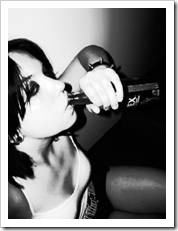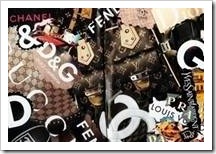 Though many parents tell their teens that popularity is not the only thing that matters, not wanting them to compromise more important things in life to fit in and be subject to peer pressure, I think in a way they are deceiving themselves.
Though many parents tell their teens that popularity is not the only thing that matters, not wanting them to compromise more important things in life to fit in and be subject to peer pressure, I think in a way they are deceiving themselves.
If popularity is not that important to us as parents,
where did our teens get this idea?
Grownups compromise a lot to gain popularity at home, at work and among their friends and family. Most extended family struggles runs around popularity. Siblings fight to be the most popular kids and the most popular grandchildren. When a couple divorces, there is an immediate struggle for being the most popular parent and most couples, unfortunately, compromise many of their values and much of the wellbeing of their precious kids just to gain imaginary popularity over their partners. Whether you like to admit it or not, you compromise a lot and are subject to social pressure yourself.
I think popularity counts, not because I think it should, but because it just does.
The Popularity Scale
Popularity is like fashion. It is unstable, unpredictable and not necessarily positive. If in one particular school, talking back to the teacher ranks high on the popularity scale, it immediately prompts the kids to talk back to their teachers. If having many piercings ranks high on the popularity scale, it sends kids the message that more piercing will get them more friends and more attention, so they pierce themselves.
The popularity scale might follow things like being sporty, academic achievements, sexuality (who sleeps around the most or who is hardest to get), ownership of brand names or gadgets, coolness or financial status. TV exposure and reading celebrity magazines make the power of popularity even more extreme. Watching sport celebrities being violent and using bad language brings up violence and bad language higher on the popularity scale. The same works for being anorexic or breaking the law.
Popularity misconceptions
 The main problem with popularity is that it is unstable and unpredictable. While teens work hard to achieve some kind of popularity, they are very likely to get to the desired destination only to find the fashion has changed and they are trapped in trying to achieve something that does not exist.
The main problem with popularity is that it is unstable and unpredictable. While teens work hard to achieve some kind of popularity, they are very likely to get to the desired destination only to find the fashion has changed and they are trapped in trying to achieve something that does not exist.
Another problem with popularity is that kids cannot distinguish between positive and negative popularity. While being friendly, helping and having good manners can create positive popularity, being rude, aggressive and arrogant can make kids just as popular they find it hard to resist even negative popularity if otherwise they may stand alone against the whole class.
A third challenge with popularity is that popular kids get to set the standards, although they gain their popularity through a different scale. If you want to understand how this works, think of celebrities. If you become a famous actor, clothing companies offer you a big contract to promote a line of clothes, because those who like you as an actor are more likely to follow what you think about clothes. If a kid is a good athlete but sucks at math, his “fans” will feel pressure to adopt his attitude towards math.
A fourth problem with popularity is that sometimes, kids believe they must be the best or the most unique to be popular, so they do extreme things, like dress extravagantly, perform dangerous stunts or act defiantly.
How to help our kids become popular safely and positively
As parents, we have the ability to use the popularity scale to our kids’ advantage. Here are my suggestions to help your kids use the popularity scale in a good, safe way.
 Do not put your teens down for being influenced easily by peer pressure, because you are the same and this will only make them lose faith in you as a role model and a trusted advisor.
Do not put your teens down for being influenced easily by peer pressure, because you are the same and this will only make them lose faith in you as a role model and a trusted advisor.- Pick a high school that supports the things you want your teens to view as popular. If you pick a school full of kids with lots of piercing, do not complain when your teens come home and ask to have some piercing on the back of their neck. At my son’s school, the fact they did not make a big deal out of his long hair was good for me, because I personally do not see any harm in him having long hair. If the school is very strict about uniform, students consider popular those who break the dress code without being caught. Sadly, this takes their mind off paying attention in class and playing music, which is what I wanted my son to do at school.
- Encourage your kids to hang around teens whose parents share your values. A teen group of friends is a like a gang, supporting one another in many ways. If your teens join a group of artists, they join a club that uses artistic ability as their popularity scale. This worked for us when we encouraged our son to join many music ensembles and vocal groups at school. In his circle of musical friends, the more “musical” you are, the more popular you are, so this worked like magic (in other schools, he might have been labeled a “geek” and shunned for being so busy with rehearsals).
- When you see a celebrity on TV or in a magazine, where the emphasis is typically on popularity, regardless of whether it is positive or negative, make that distinction to your kids. To make it extreme, I say that Hitler was also very popular.
 When you notice that a celebrity is used to promote things not in their area of popularity, again, make that distinction to your kids. Say, “He is a really good singer, but probably not because of his aftershave. He probably knows as much about aftershave as the next person”. This will promote critical thinking when your kids are exposed to popular figures using their power to manipulate them into doing or buying things.
When you notice that a celebrity is used to promote things not in their area of popularity, again, make that distinction to your kids. Say, “He is a really good singer, but probably not because of his aftershave. He probably knows as much about aftershave as the next person”. This will promote critical thinking when your kids are exposed to popular figures using their power to manipulate them into doing or buying things.- When you hear about kids who are doing things you wish to encourage, you can say, “Ben is such a friendly kid and the fact he stood up for weak kids proves that he is very confident. No wonder he is so popular. Everyone loves him and appreciates him for his character”. Such messages will tell your kids that being friendly and standing up for weak kids can make them loved and popular too.
- Create a popularity scale in your house by distinguishing positive and negative attention. Sharing is an example of something that gives my kids lots of attention and makes them popular within our family.
- Avoid perfectionism and focus on being on being near the top of positive popularity. It is good enough to be near the top when being at the top involves paying a heavy price.
 Teach your kids to distinguish between short-term and long-term popularity. Academic achievements create a more stable status than wearing brand name sports shoes. Your kids’ knowledge will be there for them in 5 or 10 years, but the brand of their shoes will never become part of who they are.
Teach your kids to distinguish between short-term and long-term popularity. Academic achievements create a more stable status than wearing brand name sports shoes. Your kids’ knowledge will be there for them in 5 or 10 years, but the brand of their shoes will never become part of who they are.- Best of all, teach your kids to be themselves and stand up for what they believe. My motto is “Be special. Be yourself”, even if it means doing things not exactly the way others (even I) expect them.
Popularity counts. Make sure your kids (especially teens) understand it!
Happy parenting,
Ronit
 Do not put your teens down for being influenced easily by peer pressure, because you are the same and this will only make them lose faith in you as a role model and a trusted advisor.
Do not put your teens down for being influenced easily by peer pressure, because you are the same and this will only make them lose faith in you as a role model and a trusted advisor. When you notice that a celebrity is used to promote things not in their area of popularity, again, make that distinction to your kids. Say, “He is a really good singer, but probably not because of his aftershave. He probably knows as much about aftershave as the next person”. This will promote critical thinking when your kids are exposed to popular figures using their power to manipulate them into doing or buying things.
When you notice that a celebrity is used to promote things not in their area of popularity, again, make that distinction to your kids. Say, “He is a really good singer, but probably not because of his aftershave. He probably knows as much about aftershave as the next person”. This will promote critical thinking when your kids are exposed to popular figures using their power to manipulate them into doing or buying things. Teach your kids to distinguish between short-term and long-term popularity. Academic achievements create a more stable status than wearing brand name sports shoes. Your kids’ knowledge will be there for them in 5 or 10 years, but the brand of their shoes will never become part of who they are.
Teach your kids to distinguish between short-term and long-term popularity. Academic achievements create a more stable status than wearing brand name sports shoes. Your kids’ knowledge will be there for them in 5 or 10 years, but the brand of their shoes will never become part of who they are.











